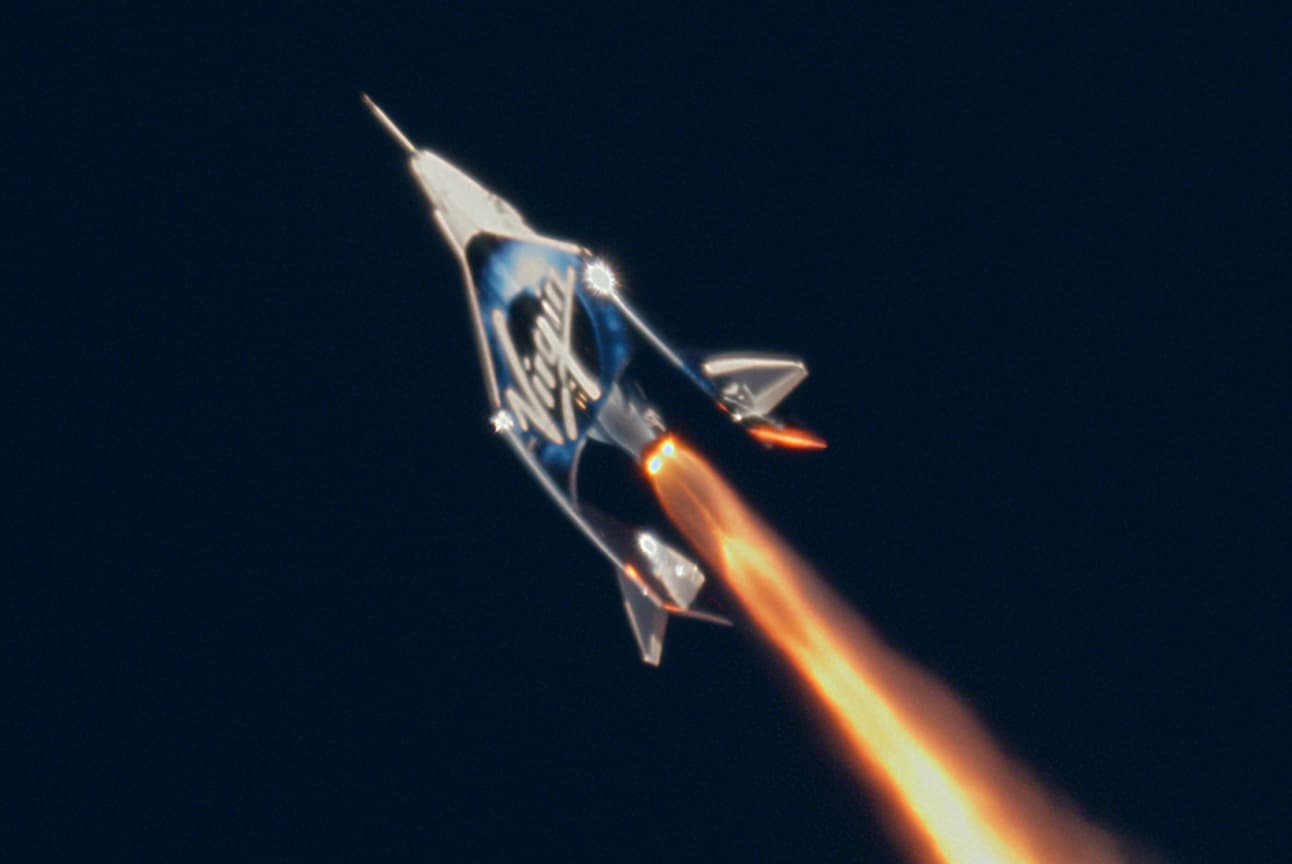Virgin Galactic’s First Spaceflight on Dec. 13, 2018
Source: Virgin Galactic
Virgin Galactic’s rally began two months ago but trading in the speculative space name has recently accelerated in a way that tops even the momentum behind Tesla.
Shares of Virgin Galactic rose as much as 12% in premarket trading Wednesday from its previous close of $30.30, which was its highest ever finish. This follows a 21% jump on Friday and 5% surge on Tuesday, daily trading spikes that resembles the speculative run in Tesla two weeks ago.
The stock has more than tripled in the past three months, up 223% before Wednesday’s open.
Daily trading volume in Virgin Galactic has been pushing higher for the past week. Before Tuesday, an average day of trading saw 12 million Virgin Galactic shares change hands. But investors flooding into the name are pushing that average higher, with Friday seeing Virgin Galactic’s trading volume hit 45.6 million shares and Tuesday reaching 104.1 million shares.
Retail investors pouring in
Fintech company SoFi said Tuesday was “today by far the largest purchase day ever for the stock” on its platform, as it was also the most-traded stock on SoFi overall.
“Trading activity on [Virgin Galactic is] up 7x this year compared to 2019,” SoFi told CNBC.
TD Ameritrade said Virgin Galactic “was among the top names bought by retail investors” bought in January.
Likewise, Fidelity told CNBC that Virgin Galactic was bought more than any other stock on Tuesday – topping Apple, Tesla and others.
Although popular trading app Robinhood does not publicize its users’ holding, Robintrack – an unofficial tool that scrapes data from Robinhood – ranks Virgin Galactic as by far the stock with the biggest increase in holdings among users. According to the tool, Virgin Galactic is now the 33rd most widely held stock among Robinhood users overall.
How Virgin Galactic compares to Tesla
Virgin Galactic’s 162% jump since the beginning of the year tops Tesla’s dazzling climb of 105%. But, beyond the resemblance in the stocks’ gains, the companies also have similarities that help explain why both are such popular speculative plays for investors.
Both companies are bets on future technologies. Tesla is focused on electric vehicles and battery technologies, as well as the future of energy, while Virgin Galactic is developing a space tourism business that also hopes to develop hypersonic long-distance travel capabilities.
Both companies’ stocks trade on what it will earn in the future, rather than what it earns now. Tesla has reported just two consecutive profitable quarters, with its latest bringing in $7 billion in revenue, while Virgin Galactic in the third quarter reported just $800,000 in revenue generated by flying scientific research payloads and providing other services. Overall, Virgin Galactic recorded a net loss of $138.1 million for the first nine months of 2019.
Finally, both companies have billionaire backers in Elon Musk and Richard Branson, who each have histories of building companies.
The biggest difference between the two companies is likely in how Wall Street views each stock. Virgin Galactic is universally recommended by analysts but Tesla is widely disliked.
Virgin Galactic is scheduled to announced fourth quarter results on Feb. 25. The company is expected to provide updates to some closely watched metrics during its Q4 earnings call, like the demand for future space tourism customers.
